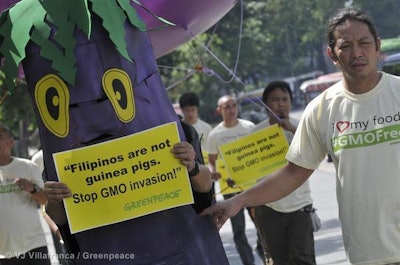
A legal challenge to the Philippines' rules on genetically modified organisms (GMOs) is threatening to spark a food crisis in the country and could cloud the outlook for GM technology around Asia, according to Reuters.
Government agencies are scrambling to set new regulations on GMOs by Feb. 23 after the Southeast Asian nation's top court late last year demanded an overhaul of existing rules, halting GM planting and issuance of new GM import permits until that was done.
The Supreme Court was acting on a petition by environmental activists led by Greenpeace, with the move likely to be closely watched by governments elsewhere as the Philippines is seen as a trailblazer for GMO.
The country was the first in the region to allow planting and commercialization of GM corn, which it did in 2002, and has permitted GM crop imports for more than a decade.
"Our framework has served as a model for GMO regulatory policy to other countries like Vietnam, Indonesia and even some Latin American countries," said Merle Palacpac, chief of the plant quarantine service at the Bureau of Plant Industry (BPI).
"We have the first functioning regulatory framework in Asia. So I am sure whatever happens here, they are closely watching."
With some current import permits starting to expire from March and corn farmers set to begin sowing in May, five government agencies are pushing to sign new rules by next Tuesday to avoid disrupting food supply in a year when voters will choose the country's next leader.
To read more, click here.



















